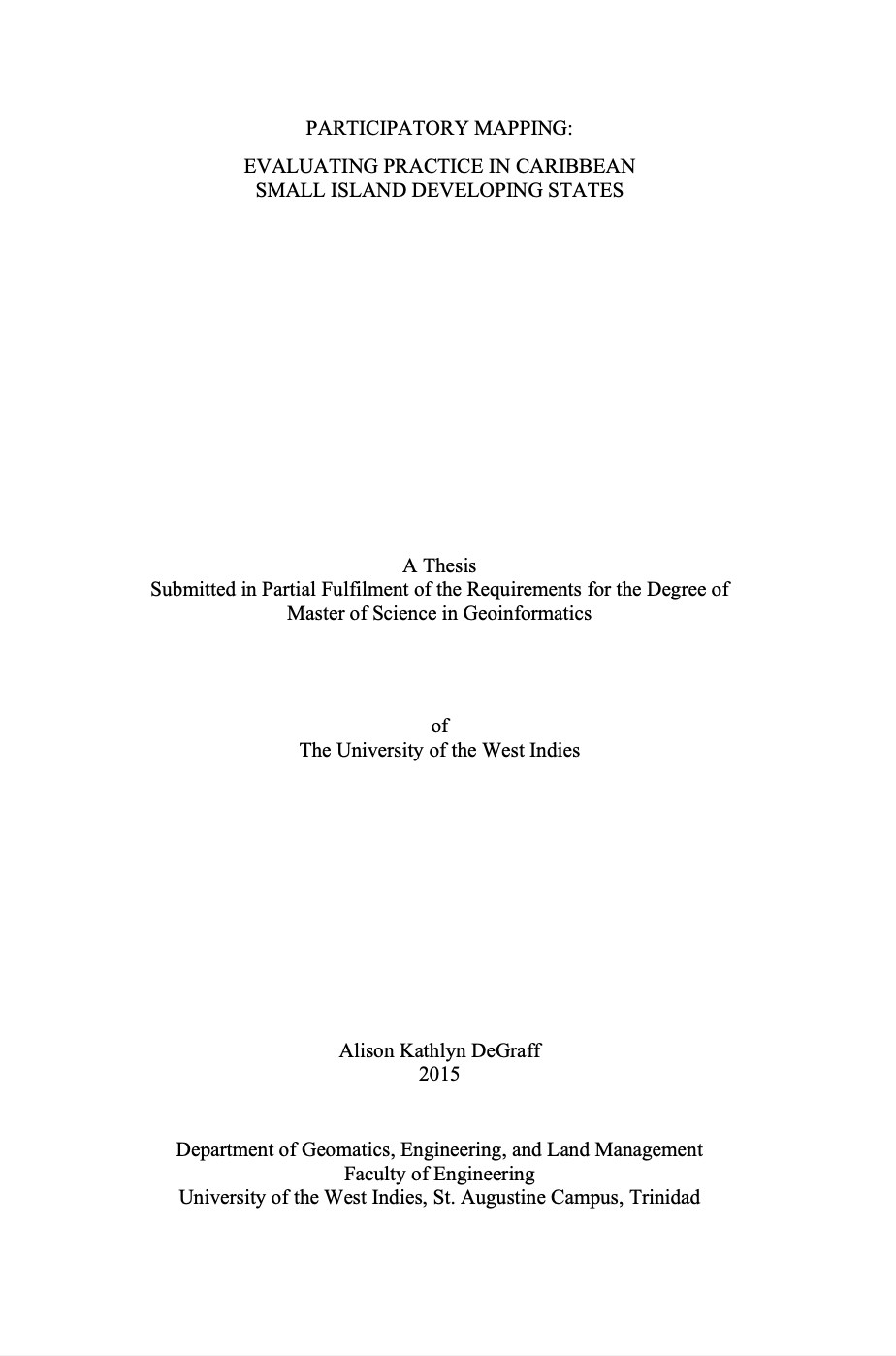
Doi: 10.13140/RG.2.2.22096.25604
Publication Name: University of the West Indies, St. Augustine
Participatory mapping is a form of intimate cartographic collaboration with communities that takes advantage of their unique local and traditional knowledge in decision-making processes. Having demonstrated its benefits in a myriad of subjects and locales across the globe over the past twenty-five years, participatory mapping is currently being recognised as a valuable tool to approach the impacts of climate change. Its worth stems from the holistic combination of scientific and local/traditional knowledge and its bridging of the gap between top-down and bottom-up approaches. By uniting these knowledge types, participatory mapping can fill a significant gap in addressing issues like the impacts of climate change, and it can further involve and engage stakeholders in decision-making processes. Participatory mapping has been used in 68 percent of the Caribbean, with Saint Vincent and the Grenadines, Grenada, and Trinidad and Tobago tied for the most projects as of 2015. This research developed a survey to gather information on participatory mapping in Caribbean SIDS and then compiled a collaborative database of projects, and an associated bibliography of publications, that promotes the transferring of ideas between practitioners. This was supplemented by the creation of a flexible and adaptable best practice methodology, which advocates for accountability and strengthened participatory processes. With this, Caribbean case studies were tested and evaluated to determine their conformance with the established best practice. Finally, a conceptual framework was designed that combined the key research themes of participatory mapping and climate change. By integrating participatory mapping into the climate change framework, it validated the importance of local/traditional knowledge and illustrated how, in combination with scientific data, it can be used to address climate change adaptation and mitigation efforts. The significance of these results is their value to connect and educate practitioners, encourage best practice in Caribbean SIDS, and embolden the use of local/traditional knowledge in the face of climate change impacts.
